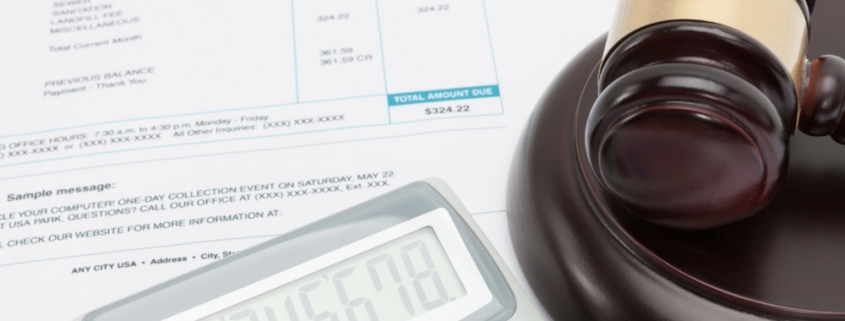Public benefits enhance the quality of life for people with disabilities yet eligibility for SSI or Medicaid is based on the financial value of assets the persons possess. So what if parents or grandparents wish to set aside additional financial resources for a child or adult with a disability while maintaining their loved one’s eligibility for public assistance?
Read moreby Staff
COVID vaccines are starting to roll out to nursing homes across the country, signaling the beginning of the end of the pandemic. Once your loved one has had both doses of the vaccine, you may be able to visit, but precautions are still necessary.
Read moreby Staff
If you are experiencing financial hardship due to the coronavirus pandemic, you may want to consider withdrawing money from your retirement account while you still can. The special exemption allowing early withdrawals without a penalty ends soon.
Read more
Congress has passed and sent to the President a spending bill that contains major changes to retirement plans. The bipartisan legislation is designed to provide more incentives to save for retirement, but it may require workers to rethink some of their planning.
The Setting Every Community Up for Retirement Enhancement (SECURE) Act changes the law surrounding retirement plans in several ways:
Read moreWe are sending you this alert as there will be a significant change in the qualification requirements for wartime Veterans and surviving spouses of wartime Veterans who are eligible for VA pension benefits. These new rules go into effect on October 18, 2018 and will make it more difficult to qualify for this important benefit that can help defray the cost of care.
Read moreAlthough a nursing home cannot require a child to be personally liable for their parent’s nursing home bill, there are circumstances in which children can end up having to pay. This is a major reason why it is important to read any admission agreements carefully before signing.
Read moreINCAPACITY PLANNING KEEPS MONEY UNDER MANAGEMENT, PROVIDES AN OPPORTUNITY FOR PRODUCT SALES, AND PROTECTS YOUR CLIENTS.
Incapacity planning is a win/win, because estate planning is not just having a plan in place to deal with a client’s death; it’s also about having a plan in place to deal with what happens if a client becomes incapacitated. There are many moving parts that need to be considered in incapacity planning. Here are a few highlights:
● What happens without an incapacity plan?
● The essential documents for managing finances during incapacity
● The essential documents for making healthcare decisions during incapacity
● How to choose the right person to manage finances and make healthcare decisions
● The importance of keeping an incapacity plan up to date
If you have any questions about incapacity planning or have a client who needs to create or update incapacity documents, please call our office now. We’d love to collaborate with you.
What happens with no incapacity plan in place?
Mental incapacity creates clients who are incapable of making informed decisions about their finances and well-being. Court-supervised guardianship and joint ownership problems are two ways things can go wrong without proper incapacity planning.
● Guardianship: Without a plan in place, a judge can appoint someone to take control of the client’s assets and make all personal and medical decisions on their behalf under a court-supervised guardianship. This person may be a stranger or your client’s most despised relative. The client and their loved ones often lose valuable time, money, and control.
● Joint ownership issues: Many clients may believe they are protected because they hold their assets in joint names with a spouse, a child, or other family members. While a joint account holder may be able to access a bank account to pay bills or a brokerage account to manage investments, a joint owner of real estate will not be able to mortgage or sell the property without the consent of all other owners.
Planning tip: Adding names to accounts or real estate titles may be deemed a gift for gift tax purposes. Using joint ownership is a risky proposition for everyone involved.
Only a comprehensive incapacity plan will protect the client and the client’s assets from these and other pitfalls.
The essential documents for financial management during incapacity
There are two essential legal documents for managing finances that must be in place before a client becoming incapacitated:
1. Power of attorney: This legal document gives an agent the authority to pay bills, make financial decisions, manage investments, file tax returns, mortgage and sell real estate, and address other financial matters that are described in the document. Powers of Attorney come in two forms: “durable” and “springing.” A durable power of attorney goes into effect as soon as it is signed, while a springing power of attorney only goes into effect after the person who has made the document is determined to be mentally incapacitated.
Planning tip: Make sure your legal department is going to honor your clients’ powers of attorney; if not, notify the client (and us if possible) immediately so that we can get a plan in place that will work.
2. Revocable living trust: This legal document has three parties to it: the person who creates the trust (the “grantor”); the person who manages the assets transferred into the trust (the “trustee”); and the person who benefits from the assets transferred into the trust (the “beneficiary”). In the typical revocable living trust situation, the grantor is also the trustee and beneficiary of their trust. But if the grantor/trustee/beneficiary becomes incapacitated, then someone else is named to step in as the successor trustee and manage the trust assets for the benefit of the incapacitated grantor/beneficiary.
Planning tip:Be sure appropriate assets (non-retirement assets) are titled in the name of your clients’ trusts. If they’re not, ask permission to chat with us to determine whether they should be. A trust can only control assets titled in its name, so proper and complete funding of the client’s trust is vitally important.
To be part of an effective incapacity plan, a revocable living trust should contain provisions to determine the mental status of the grantor/trustee/beneficiary through a private process (i.e., an attending physician, the opinion of two physicians, or some other method) instead of a public court process. Also, the trust agreement should contain specific instructions about how to take care of an incapacitated grantor/beneficiary. Many older trusts or poorly-drafted new trusts omit these terms. If you aren’t sure whether a trust has these provisions, contact us so we can assist you in reviewing and updating the document.
The must-have document for healthcare decision-making
A Health Care Proxy is the essential legal document for making healthcare decisions that must be in place prior to becoming incapacitated. This legal document gives an agent the authority to make healthcare decisions if the person signing the document becomes incapacitated. Also, Federal and state laws dictate who can receive medical information without the written consent of the patient. This legal document also gives a doctor or other health care provider authority to disclose medical information to the agent selected by the patient.
A client’s loved ones may be denied access to medical information during a crisis and end up in court fighting over what medical treatment the client should, or should not, receive (like Terri Schiavo’s husband and parents did, for 15 years). Without these documents, a judge may also appoint a guardian to oversee the client’s health care, thereby adding further expense and hassle. Clients should have these documents examined and frequently updated to ensure they accurately reflect their wishes.
How to choose the right agents for an incapacity plan
There are two very important decisions clients must make when putting together their incapacity plan: who will be in charge of managing their finances during incapacity, and who will be in charge of making their medical decisions during incapacity. Factors clients should consider when deciding who to name as their agents include:
● Where does the agent live? With modern technology, the distance between the client and the agent matters far less than it once did. Nonetheless, someone who lives close by may be a better choice than someone who lives in another state or country.
● How busy is the agent? If the agent has a demanding job or frequently travels for work, then they may not have time to take care of the client’s finances and medical needs.
● Does the agent have relevant expertise? An agent with work or life experience in finances or medicine may be a better choice than one without it.
Planning tip:Choosing the wrong person to serve as financial or health care agent will result in an ineffective incapacity plan because the plan requires a qualified agent to carry it out. Clients need to carefully consider who to choose as their agent and then discuss their decision with that person to confirm that they will, in fact, be willing and able to serve.
Are the incapacity plans of your clients up to date?
As time passes by and the lives of your clients change, their incapacity plans will become outdated. It is important for clients to have their incapacity plan reviewed every three to five years or after a major life event (such as a divorce or death) to best ensure that the plan will work the way they intend it to work if it is ever needed.
Please contact our office to discuss incapacity planning opportunities and to schedule plan reviews for your clients.

Article posted by:
David S. Staggs, LL.M., Esq.
Attorney at Pierro, Connor & Associates, LLC
For more information on how we can help, or to get in touch with David S. Staggs, Esq. please contact Sarah Beach, Director of Marketing at Pierro, Connor & Associates, LLC:
Tel: 866-951-PLAN
Email: [email protected]

ABLE ACCOUNTS: A NEW PLANNING TOOL
ABLE accounts are a relatively new planning tool available to individuals with disabilities. The Achieving a Better Life Experience (ABLE) Act, signed by President Obama in 2014, allows individuals who meet certain criteria to open and hold assets in an account that will not be counted as a resource for the purposes of public benefits. At the same time, the account beneficiary has more control and access to the funds than with a traditional special needs trust.
Read more
One of the first questions clients ask when discussing a special needs trust is how the money can be used for the beneficiary. It is crucial to be careful when making distributions for the benefit of the trust beneficiary. This is particularly true if the beneficiary receives Supplemental Security Income (SSI) because any distribution could potentially violate Social Security’s rules regarding unearned income for SSI recipients. If a distribution runs afoul of these rules, the Social Security Administration will treat the distribution as unearned income on behalf of the beneficiary and reduce the beneficiary’s income dollar-for-dollar after the first $20 of the distribution.
Read more





